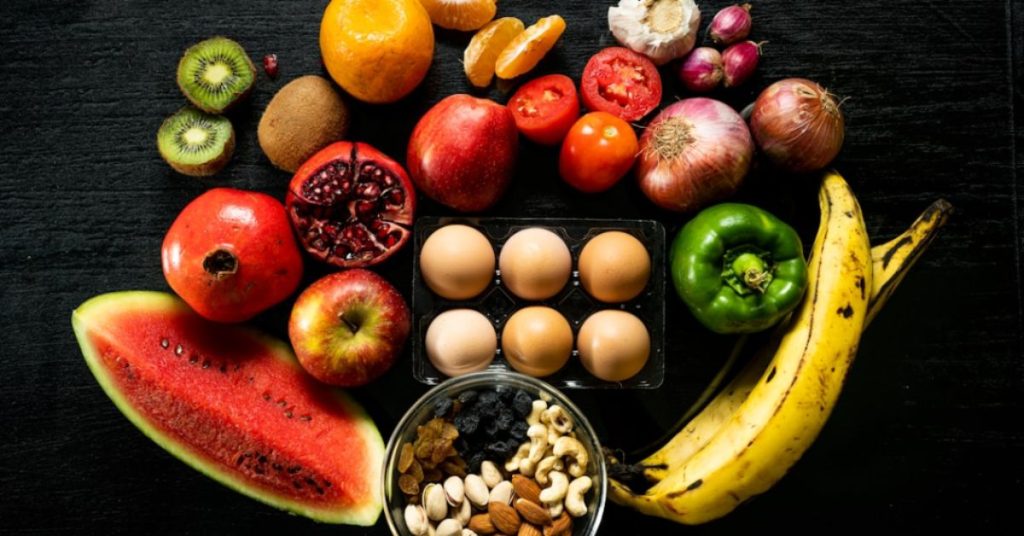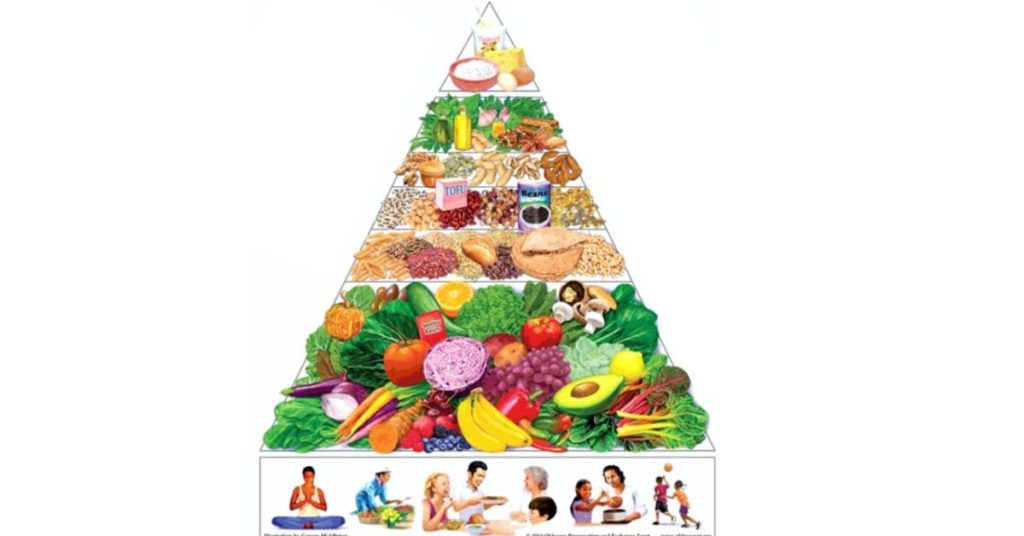
How to Balance Hormones Through Diet | 9 Proven Diet Tips to Successfully Balance Hormones Naturally

Our editorial team individually chooses every products on healthy lifestyle that is suggested on obonappetite. We might get paid if you buy something after clicking on any of these links.
Feeling a bit off? It might be your hormones. When these powerful chemical messengers are out of sync, it can affect everything from your mood and energy levels to your weight. The good news is that what you eat can play a significant role in getting them back on track.
This guide will show you how to balance hormones through diet. We will explore what hormones are, why keeping them balanced is crucial for your hormonal health, and what foods can help you feel your best. By making simple, sustainable changes to your meals, you can support your body’s natural rhythm and take control of your well-being.
Understanding Hormones and Their Role in Wellness
Before we explore how food impacts your hormones, let’s understand what they are and why they are so important for your overall health.
What Are Hormones?
Hormones are your body’s chemical messengers. Produced in the endocrine glands, these powerful chemicals travel through your bloodstream to tissues and organs, telling them what to do. They are crucial for regulating most of your body’s major processes, including metabolism, reproduction, and mood.
Think of hormones like the managers of your body, overseeing every function to ensure things run smoothly. Here are a few key players:
- Thyroid hormones: These control your body’s metabolism, growth, and development. They are essential for brain development during pregnancy and infancy.
- Insulin: Produced by the pancreas, this hormone allows your cells to take up sugar from your blood for energy. Keeping insulin levels stable is key for preventing blood sugar spikes and crashes.
- Estrogen: This hormone is vital for both female and male reproductive health. It also influences blood sugar balance hormones, immune function, and brain health.
- Cortisol: Known as the “stress hormone,” cortisol helps your body respond to stress. Chronically high levels can lead to inflammation and other health issues.
Your body is designed to produce the precise amount of each hormone it needs. However, factors like stress, poor sleep, and diet can disrupt this delicate balance hormones.
Importance: balance hormones
When your hormones are in balance, you feel energetic, clear-headed, and emotionally stable. But when they become unbalanced, it can lead to noticeable and often frustrating symptoms.
An imbalance can increase your risk of chronic conditions like obesity, diabetes, and heart disease. For many women, it can also lead to issues with fertility and the menstrual cycle. Maintaining hormonal health is not just about feeling good today; it’s about investing in your long-term wellness.

Common Signs of a Hormone Imbalance
Hormonal imbalances can show up in many ways, and the symptoms often overlap with other health problems. This is why it’s important to pay attention to your body and talk to a healthcare provider if something feels off.
Some common signs for women include:
- Irregular or heavy periods
- Unexpected weight gain or difficulty losing weight
- Persistent fatigue
- Mood swings, anxiety, or irritability
- Acne or other skin problems
- Hair thinning or loss
- Trouble sleeping or night sweats
- Headaches
- Decreased libido
- Hot flashes
If you experience these symptoms, know that you are not alone, and there are steps you can take to regain balance hormones.
Dietary Approaches to balance hormones
Your diet is one of the most powerful tools you have for supporting your endocrine system. By choosing nutrient-dense foods, you can provide your body with the building blocks it needs to produce and regulate hormones effectively. A balanced diet can also help manage inflammation and blood sugar, which are closely linked to hormonal harmony.
Foods That Help Balance Hormones
Incorporating a variety of whole foods into your diet is the best way to support your hormones. Here are some of the most effective food groups to focus on.
The Role of Healthy Fats
Healthy fats are the foundation for hormone production. Your body needs them to create hormones like estrogen and testosterone.
- Omega-3 Fatty Acids: Found in fatty fish like salmon, as well as flaxseeds and walnuts, omega-3s are anti-inflammatory and can help lower cortisol levels. They also help increase insulin sensitivity, which is crucial for stable energy and weight management.
- Unsaturated Fats: Avocados, olive oil, and nuts are excellent sources of unsaturated fats. These fats support overall hormone regulation and are essential if you’re looking to improve your sex hormone health.
Incorporating Whole Grains and Legumes
Complex carbohydrates from whole grains and legumes provide sustained energy and support balance hormones.
- Whole Grains: Quinoa and brown rice contain fiber, magnesium, and phytoestrogens. Fiber helps with blood sugar control and supports a healthy gut, which is essential for estrogen metabolism.
- Legumes: Lentils, chickpeas, and beans are packed with fiber and protein. This powerful combination helps slow down digestion, preventing the blood sugar spikes that can disrupt insulin levels.
The Power of Protein
Eating enough protein is crucial for hormonal health. Your body uses amino acids from protein to produce peptide hormones, which regulate processes like growth, appetite, and stress. Including a source of protein like lean meat, fish, eggs, or tofu in every meal helps stabilize blood sugar and keeps you feeling full.
Fruits and Vegetables for Antioxidants
A colorful plate is a sign of a hormone-friendly meal. Berries, broccoli, and leafy greens are rich in antioxidants, vitamins, and minerals that your body needs for hormone production. Their anti-inflammatory properties can also help reduce the impact of stress on your system.

Specific Nutrients for Hormonal Health
While a balanced diet is key, certain vitamins and minerals are particularly important for hormone regulation.
Vitamins and Minerals to Support Hormones
Here are some of the top vitamins to balance hormones for females:
- Vitamin D: Often called the “sunshine vitamin,” Vitamin D acts more like a hormone in the body. It is essential for fertility and sex hormone production. You can find it in fatty fish, eggs, and fortified milk, but many people need a supplement to get enough.
- Vitamin B12: This vitamin is critical for thyroid health. Research shows that about 30% of people with thyroid issues are deficient in B12. It’s primarily found in animal products.
- Selenium and Zinc: These minerals are vital for converting thyroid hormones into their active form. You can find selenium in Brazil nuts and zinc in pumpkin seeds and meat.
- Iodine: Iodine is a crucial component of thyroid hormones. Many table salts are fortified with iodine, so most people in the United States get enough. You should not take an iodine supplement unless your doctor advises it.
Creating a Hormone-Balancing Diet Plan
Ready to put this knowledge into practice? Creating a hormone balancing diet plan doesn’t have to be complicated. The goal is to build sustainable habits that nourish your body.
A simple rule of thumb is to build every meal around protein, fiber, and healthy fats. This trio helps manage blood sugar and insulin levels, keeping your energy stable and cravings at bay. For snacks, aim for at least two of these three components.
Hydration and Its Impact on Hormones
Don’t forget about water! Staying hydrated is essential for every bodily function, including hormone transport. Dehydration can cause stress on the body, leading to an increase in cortisol. Aim to drink plenty of water throughout the day to support your overall health.
Beyond Diet: Other Lifestyle Factors
While learning how to balance hormones through diet is a huge step, other lifestyle factors play a role too.
- Stress Management: Chronic stress can wreak havoc on your hormones. Incorporate stress-reducing activities like meditation, deep breathing, or spending time in nature into your daily routine.
- Exercise: Regular physical activity can lower insulin levels and improve insulin sensitivity. A mix of cardio, strength training, and high-intensity interval training is effective.
Sleep: Poor sleep disrupts the hormones that regulate appetite, stress, and metabolism. Aim for 7-9 hours of quality sleep per night.

Take Control of Your Hormonal Health
Balancing your hormones is a journey, not a destination. By focusing on a diet rich in whole foods, managing stress, and getting enough sleep, you can support your body’s natural rhythm and improve your well-being.
Listen to your body, be patient with yourself, and remember that small, consistent changes can lead to big results. You have the power to take control of your hormonal health and feel your best.
Related posts
Your Questions, Answered
How can healthy fats help balance my hormones?
Healthy fats, such as those found in avocados, nuts, and olive oil, play a crucial role in hormone production and balance hormones. These fats are essential for the synthesis of hormones and can help regulate your hormones effectively. Incorporating healthy fats into your diet can support hormone function and maintain a healthy hormone balance.
What is the role of nutrition in maintaining a healthy hormone balance?
The role of nutrition is vital in maintaining a healthy hormone balance. A well-balanced diet rich in whole grains, lean proteins, and anti-inflammatory foods can help regulate hormone levels. Eating certain foods may also support hormone secretion, which is important for overall wellness and energy balance.
How can the Mediterranean diet affect hormonal imbalance?
The Mediterranean diet, known for its emphasis on whole foods, healthy fats, and lean proteins, can positively influence hormonal balance. This dietary pattern is rich in omega-3 fatty acids and antioxidants, which may help reduce inflammation and support hormone function. Incorporating the Mediterranean-style diet may assist in managing symptoms of hormonal imbalance.
Which foods may help balance my hormones?
Certain foods, such as leafy greens, fatty fish, nuts, and seeds, are known to help balance hormones. Foods that are high in fiber and protein can also contribute to stable hormone levels. Including these nutritious foods in your diet can promote hormonal health and assist in managing conditions like polycystic ovary syndrome.
What are the effects of processed foods on hormone levels?
Processed foods can negatively affect hormone levels and contribute to hormonal imbalances. Ultra-processed foods often contain unhealthy fats, added sugars, and preservatives that may disrupt hormone signals and lead to issues like insulin resistance. Focusing on a nutritious diet that minimizes processed foods is essential for maintaining a healthy hormone balance.
Related Post

How to Care for Zinnias | Keep Them Blooming All Season
Our editorial team individually chooses every product that is suggested on obonappetite. We might get paid if you buy something

Top Places to Visit in Bangladesh | A Guide to Hidden Gems & Icons
Our editorial team individually chooses every product that is suggested on obonappetite. We might get paid if you buy something

How to Germinate Flower Seeds | Step-by-Step for Strong, Healthy Sprouts
Our editorial team individually chooses every product that is suggested on obonappetite. We might get paid if you buy something









